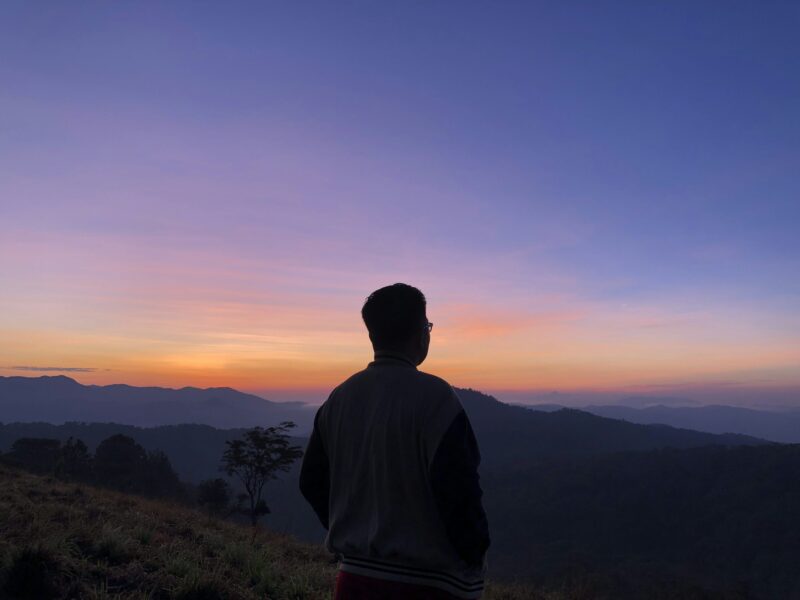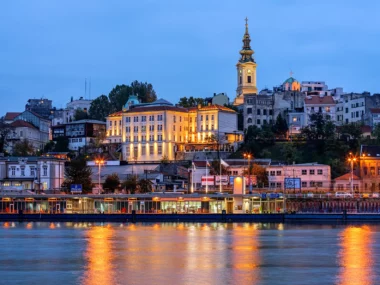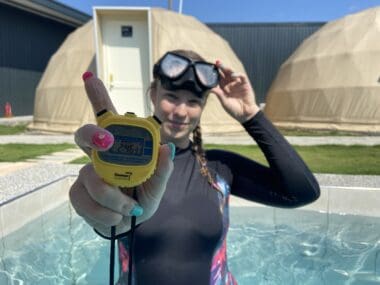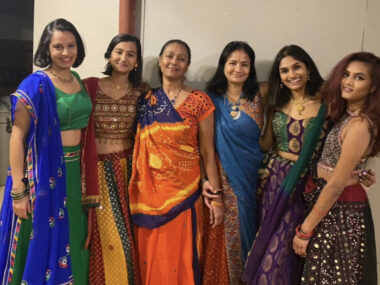Table of Contents
How My Mormon Mission Experience Began
Have you ever seen two young guys with white shirts, ties, and plaques walking around your neighborhood? They are usually smiling, polite, and ready to help you with anything you need. Well, if you have, you’ve probably met Mormon missionaries.
When I was 18, I was one of them. I served for two years as a full-time missionary for the Church of Jesus Christ of Latter-day Saints (aka the Mormon Church) in Argentina. Coming from a mormon family, I was raised in the church and all its principles for as long as I can remember. From fasting once a month to abstaining from coffee and alcohol, my family was very involved in the church and it was a core part of our identity.
Going on a mission is like a rite of passage when you are 18. When you grow up mormon, you just know this is something that’s going to happen one day, but it feels pretty far. Years go by, and suddenly, you know it’s happening. You’re seventeen, sending in your papers with your friends, waiting to be assigned to one of the 451 missions worldwide.
Some get more excited than others. Truth be told, I was pretty neutral about it. I wasn’t particularly excited or scared, it just felt like the next checkbox in my life, like the “correct thing I had to do”.
A mission is a once-in-a-lifetime experience that lasts 2 years for men and 18 months for women. When I try to explain it to my friends, I tell them it’s like being a monk or a priest for two years. There are certain rules you have to follow as a missionary, like limiting your internet access to an hour and a half per week (only to write a weekly letter to your loved ones), no dating or being alone with someone from the opposite sex, only watching and listening to approved media, and being with your companion 24/7 All of this is meant to keep you focused on what the church calls your main purpose: preaching the gospel. In practice, that means the missionaries teach the Mormon religion and try to convert other people to it. The central message is what they call the Restoration, the idea that after Christ’s apostles died, the original church and its authority were lost, and later restored by Joseph Smith, the founder of Mormonism, in the 1800s. Missionaries share this message door to door and invite people to be baptized.
Questioning My Path During the Mormon Mission Experience
The intention behind it is simple: if Mormonism brought you happiness and salvation, you want others to feel that same happiness. It’s considered one of the most important things a young member can do, almost like a rite of passage. Once you return home, it becomes a big part of your identity. Finishing a mission isn’t just a spiritual achievement, it’s also a ticket to social validation within the Mormon community, proof that you were faithful, disciplined, and obedient to what the church expected of you.
When I think about my missionary experience today, I see it as something that I needed to live in order to learn many things: like talking to strangers, seeing other realities, facing rejection and being responsible for myself. As a matter of fact, it was on my mission where I learned that I liked talking to people and learning about other cultures. It was like a seed for my upcoming journey. But it wasn’t easy at all. Mormon culture, having great things as serving others, is also full of expectations. Almost like if all your life it’s already planned out for the future.
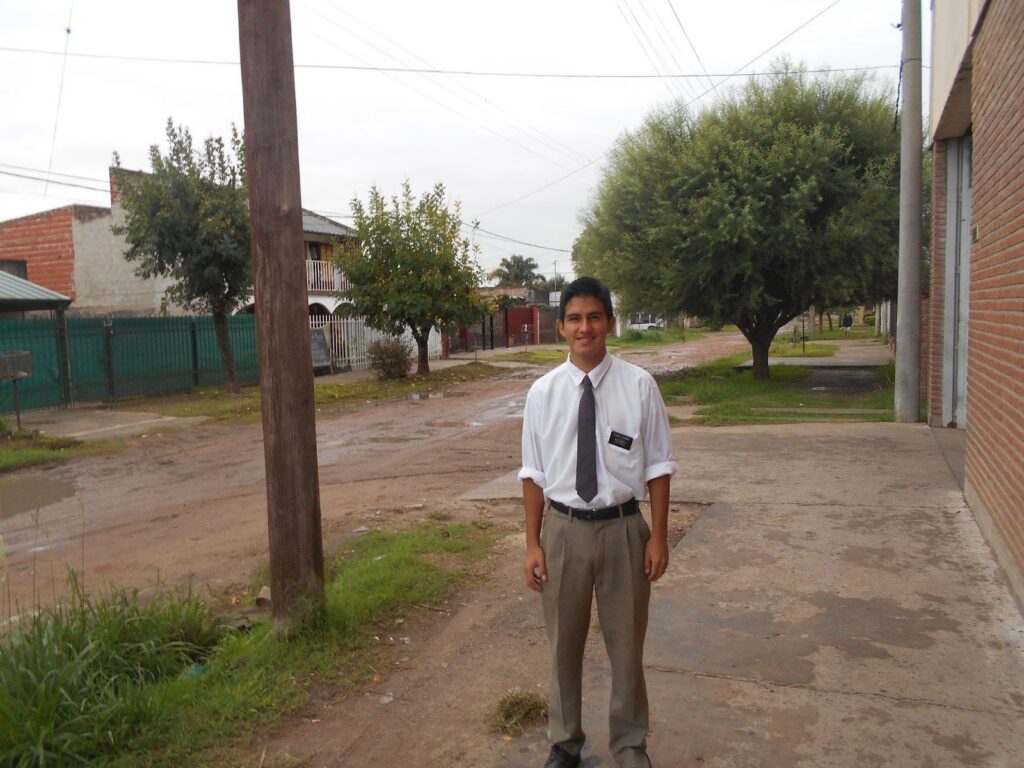
I remember one day me and other missionaries were talking about the future, what our plans were, and they asked me:
-”Elder Cotrina, what are you gonna do when you get back?”
I thought about it. There were so many things that I daydreamed about.
-”I think I will probably study something I like and then travel the world.”
-”Wait, you don’t want to start a family yet?”
-”Well yeah, if I fall in love, I’m financially stable and naturally feel like it’s the right thing. But there is time for that. I want to do so many things before making that decision.”
-”You know that is not the plan right? Have you not understood anything of what we teach?”
Some of them laughed at me. They called me crazy for thinking differently.
At first I have to admit I felt bad. Was I doubting God’s plan for me? Why did I have to be like this? I felt I was being too proud, and with a big inner conflict.
Looking back at it, this is something that would repeatedly happen to me with many of the things about Mormon teachings and culture. When I didn’t agree with something, I would try to say something about it, but as soon as others felt the questioning, they would always cut me off as soon as they could. So I slowly learned how to stay quiet.
When I went to the church or the temple, all I could see was a pretty place. But I didn’t actually feel anything beyond that. It was so different from when I went trekking or when I was close to nature. I always tried to explain it to others, and they would always tell me that I should try harder to feel what I needed to feel in the correct places.
Life After My Mormon Mission Experience
I finished my two year mission and I went back home. I figured that, if I kept trying, maybe one day I would just feel the spark that everyone talked about.
And I tried.
And it was never enough.
For years. I gave my 100% to try to feel it was true. The way to my happiness.
But I didn’t feel it.
It is one of those things when you realize maybe your path is different, and you forgive yourself for feeling that way. Is just accepting who you actually are.
I remember thinking one day that if the mormon idea of happiness meant being someone I was not, I was willing to renounce that, even if by any chances it was true, which I also didn’t believe.
I told myself I’d rather live one authentic life, that spend an eternity with a mask.
So I left the church at 25. I thought about my life and my happiness, and I felt it was time for me to create the life that I wanted. One that I could believe.
I quit my job, sold all my stuff in Peru, forgot everyone else’s expectations for my future, acknowledged that I had power over my life, and embarked myself on an adventure to South East Asia. Many called it “an escape from reality”, but for me, it was the start of a new one.
How Travel Gave Me Perspective on My Mormon Mission Experience
I arrived in Thailand in March 2024. Coming from Latin America, it felt like another world in some ways. In the religious aspect, I was fascinated, because Christianity wasn’t the main belief there. I’d see Buddhist temples everywhere, monks walking silently at sunrise, and people stopping in the middle of their day to pray or leave offerings. It was all very peaceful. I felt no one tried to convince you or blame you for anything; people simply lived their faith quietly, happily, and with respect for others.
It was a big contrast from how I grew up, where Mormon belief came with rules, expectations, and a constant sense of appearance and reputation. In my experience, faith was something to show, to defend, to prove. But here, it felt like faith existed just for the sake of peace and growth, not validation.
I started to think how different it must have been to grow up with another belief system. I met some of the happiest people on the road, and remembered that there was a time in my life when I used to say that no one else had “true happiness” but mormons. Slowly, I learned to let that belief out.
While traveling Nepal,I learned about the Budhanilkantha Temple, a Hindu shrine dedicated to Vishnu. What fascinated me was that Buddhists also venerate the same statue, seeing it as a representation of the divine. No one argues about who’s right or wrong; they simply pray side by side. That image stayed with me: how come two religions can share the same sacred space, each seeing something different, yet finding meaning in the same place? It reminded me that spirituality doesn’t need to be exclusive or competitive. It can simply be a personal connection to something greater, in whatever form that takes.
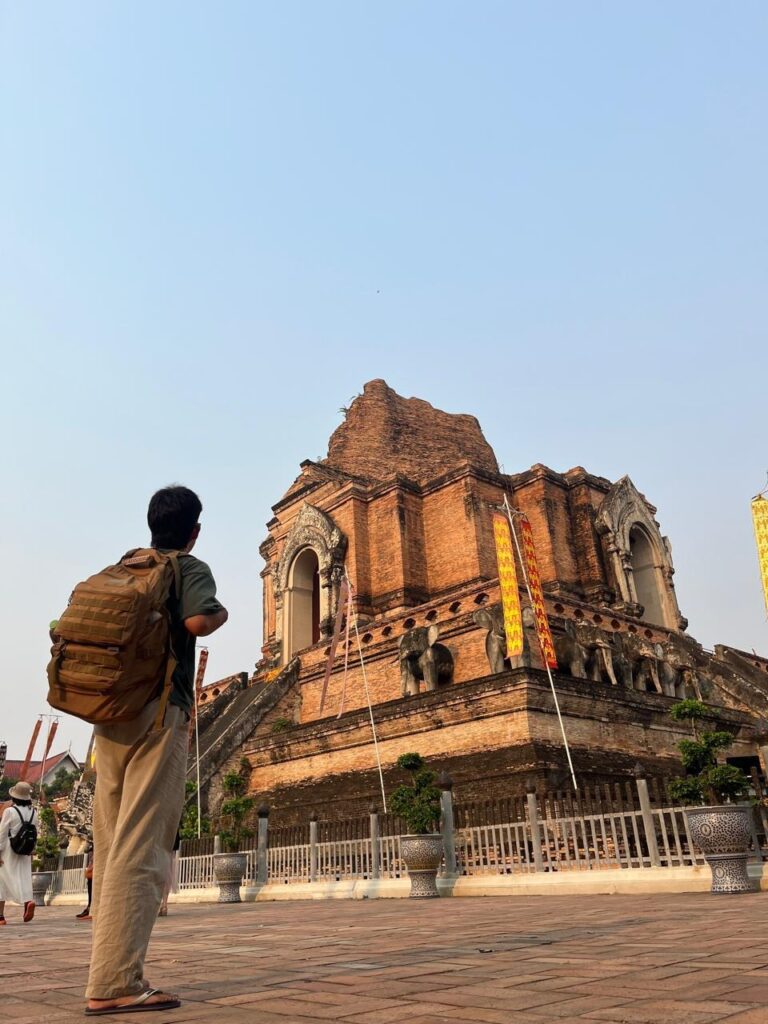
Later, I stayed at a monastery for a silent retreat. This experience gave me so much introspection. While meditating, I processed so many things. I remember thinking about how my idea of happiness and suffering had already been changing the months before, and with this experience, it was redefined. I felt more excited to live, more forgiving with myself, more compassionate, and learned how to separate guilt, actions and self-value.
I still attended the Mormon church in some cities just to see what it was like. It felt familiar, like I could still fit in, but no longer belong.
I met so many people and friends who I could truly be myself without the fear of being judged. They were accepting. I met people from all religious backgrounds, and would always try to learn something new. I learned how to separate religion from spirituality, and until this day, I’m on the path of finding what takes me closer to the divine, while enjoying the process.
Now, when I think about my time in the church, I don’t feel anger or resentment. I actually feel grateful. Because even though that chapter ended, it gave me the foundation to start asking questions, and the courage to look for my own answers.
I’ve learned that faith, at least for me, doesn’t always look like going to a specific place.
Sometimes it’s having hope, even when you don’t know what’s next.
Sometimes it’s the moment you forgive your past self for not knowing better.
Or when you realize that maybe you didn’t lose God, you just started finding Him everywhere else.
In the smile of a stranger that you just met.
In the quiet of a sunrise in the mountains.
In the feeling of peace when you finally start being yourself.
I no longer define my life by what I left behind, but by what I’m still discovering. I’m not sure if I’ll ever fully understand what “truth” is, but I know this: freedom isn’t the absence of belief, but it’s the space to explore it.
And maybe that’s what I was looking for all along.
If you enjoyed reading about my experiences, feel free to check out some of my other articles:
What is a Mormon mission experience actually like for an 18-year-old?
A Mormon mission experience often begins as a rite of passage: you receive an assignment somewhere in the world and commit to living like a full-time religious representative for 18–24 months. For many young missionaries, including myself, it feels like the “expected next step,” with strict rules, limited contact with family, and a daily schedule centered around teaching and serving others.
Why do Mormon missionaries follow so many strict rules?
The rules — such as avoiding dating, limiting internet access, always being with a companion, and consuming only church-approved media — are meant to keep missionaries focused on preaching the gospel. In practice, these rules can create a highly structured, disciplined environment that shapes the entire Mormon mission experience, for better or for worse.
Is it normal to question your path during a Mormon mission?
Yes. Many missionaries experience internal conflict when personal beliefs or future goals don’t fully align with church expectations. In my case, questioning traditional timelines—like getting married young or following a predetermined life plan—led to tension with other missionaries and a deeper awareness of my own values.
4. What happens when you don’t feel the spiritual confirmation the church teaches you to expect?
For some people, despite years of trying, studying, serving, and praying, the expected spiritual “spark” never arrives. This can lead to guilt, confusion, or a sense of failure. For me, the realization that I didn’t feel the promised spiritual certainty became the beginning of accepting that my path might be different.
How did leaving the Mormon Church affect your life after your mission?
Leaving the church at 25 was less about rebellion and more about authenticity. I chose to build a life that aligned with my beliefs, not just inherited expectations. This meant selling everything, traveling through Southeast Asia, and redefining my relationship with faith, identity, and happiness.

